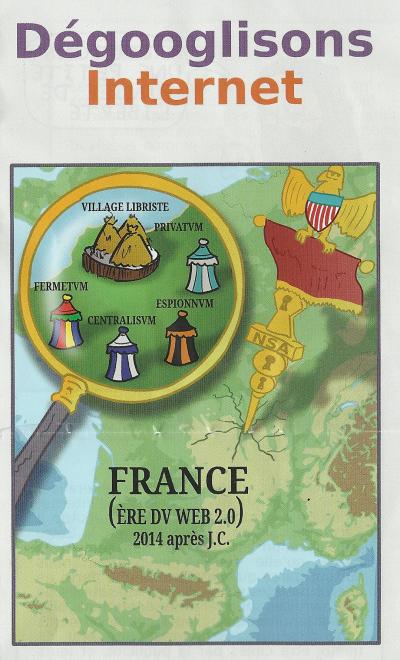All Posts
Good Parenting, or High-Tech Cruises?
Some months ago, TechCrunch reported that, on High-Tech cruise ships like the Quantum Of The Sea, “Wi-Fi is fast and it’s everywhere” for one specific reason that I really don’t like .
Forget fablabs and makerspaces! Who ELSE is promoting Digital DIY in Europe?


As some of you may already know, these days I also work in the H2020 research project “Digital DIY”, a world of which 3D printing is only the most fashionable part, but not the biggest, nor the most important. Among other things, right now we’d need to know something that is pretty hard to discover without _local (meaning: yours!) _assistance, because it is “hidden” behind many different languages and layers of burocratic structures and inertia:
Citizen cloud thoughts, after fOSSa 2015
I had (at least) three big reasons to be at the fOSSa 2015 conference, a couple of weeks ago. Two already covered elsewhere and one, “Citizen Cloud: Towards a more decentralized internet?", that deserves its own separate post.
Microsoft vs OpenOffice in Pesaro: first, let's recap

Pesaro is a town of about 100 thousands people on the northern adriatic coast of Italy. Its Public Administration has been facing lots of critics from Free/Open Source software supporters because, in the last five years, it changed twice the same, important part of its ICT infrastructure. Both those changes bring consequences and open issues, both for the critics and for Pesaro, that have had little or no coverage at all so far, especially outside Italy (1). Before talking about them, however, it is necessary to summarize what happened.
Catholics, Free Software and Free Knowledge, again
Almost ten years ago, I wrote about Free Software’s surprising sympathy with Catholic doctrine, noting that, albeit certain statements sound _“as if they could have been written by Richard M. Stallman, founder of the Free Software Foundation (FSF), in fact, they come from the Vatican Report “Ethics in Internet” (EiI)”.
Can secure voting exist on the Internet?
Last week I was asked this question: “If relatively secure financial transactions can exist, relatively secure voting can exist on the internet, can it not?" My answer? No. Because…

